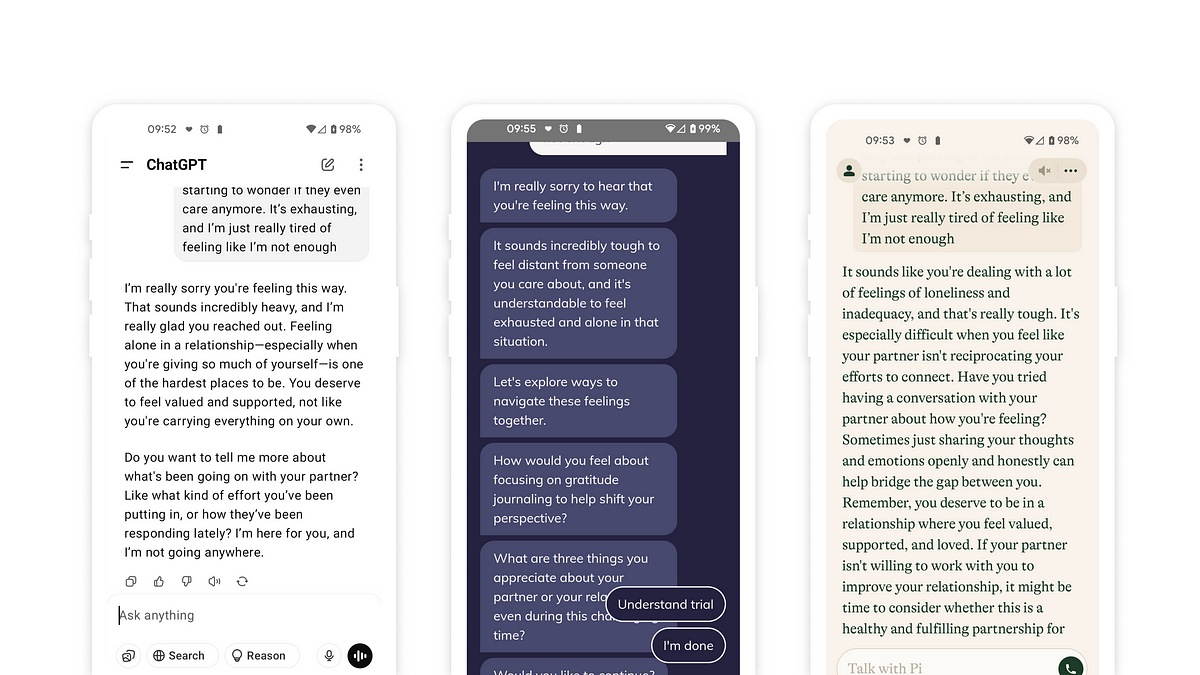UX Design
1M
72

Image Credit: UX Design
The promises and pitfalls of UX in AI-driven mental health care
- AI-driven mental health care offers promising solutions to address global mental health crises by providing 24/7 support, reducing costs, and bridging gaps in care access and stigma barriers.
- However, potential dangers include the risk of exacerbating mental health conditions and eroding human-to-human connections, as seen in cases like emotional dependency on AI chatbots leading to harmful outcomes.
- Key principles shaping mental health AI-chatbots include synthetic empathy for user comfort, anonymity for reducing stigma, and 24/7 availability for immediate support, along with challenges like limited depth of understanding and an illusion of self-efficacy.
- Design choices such as anthropomorphism to enhance trust, sycophancy for short-term user satisfaction, and inclusivity to eliminate biases play crucial roles in promoting equitable and effective mental health support through AI technologies.
- The focus now lies on understanding and addressing the unintended consequences of AI-driven mental health care to ensure the well-being and flourishing of individuals, emphasizing the need to augment human-to-human care rather than replace it.
Read Full Article
4 Likes
For uninterrupted reading, download the app